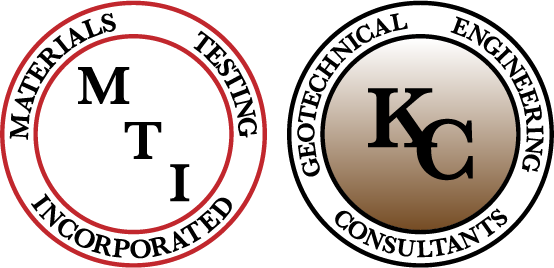Geotechnical
Geotechnical services are important through all phases of a project, from concept and planning, through land acquisition, design, and construction of a project, whether it is a single-family custom residence, commercial/retail development, high-rise building, manufacturing plant, transportation facility, or any other structure that is supported upon or within the earth.
KC Engineering’s professional engineers and staff help clients evaluate the subsurface condition of a site in order to establish the most geotechnically feasible and cost-effective earthwork and foundation alternative. This involves adequately investigating, sampling and analysis of the earth materials in addition to incorporating our extensive knowledge database from other projects in the vicinity. Using the compiled data, we provide the most geotechnically and cost-effective design solutions while addressing the risk of poor performance of foundations, floors, retaining walls, slopes and pavements. Where required, solutions are provided for mitigation of complex geotechnical hazards such as liquefaction, landslides and slope stability, and compressible and expansive soils.
While we recognize that our professional and technical abilities are vital to the successful completion of a project, we must provide our services while communicating with other design professionals on the team, regulatory agencies, and construction companies.
OUR GEOTECHNICAL SERVICES INCLUDE:
Subsurface Exploration
Field and Laboratory Testing
Geotechnical Design Criteria
Site Improvement Recommendations
Feasibility Studies
Landslide Evaluation and Mitigation
Slope Stability Analysis
Expansive Soils Studies
Pavement Recommendations
Retaining Wall Design
Engineered Fill Observation and Testing
Keyway/Buttress and Subdrain Construction Observation
Grading Specifications and Drainage Recommendations
Fault and Seismic Evaluations
Peer Review
Geotechnical Expert Witness/Forensic Evaluations





